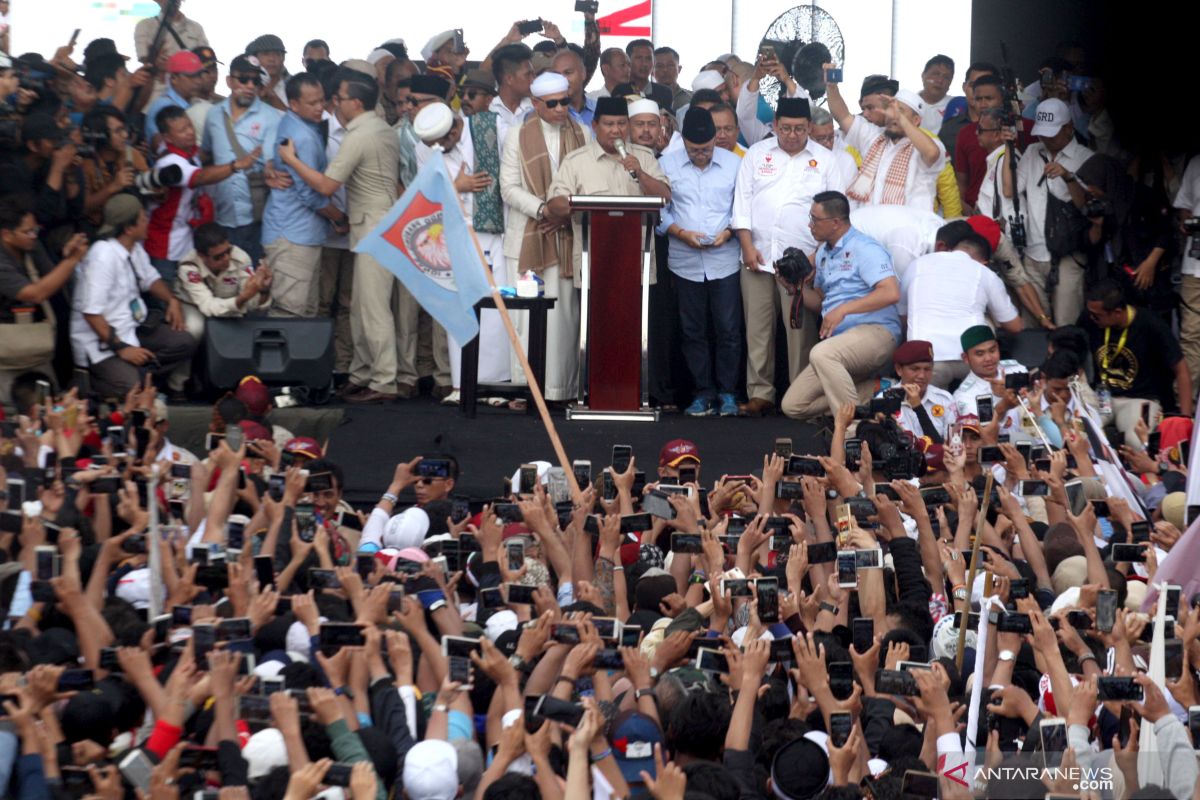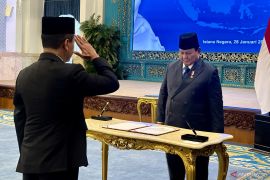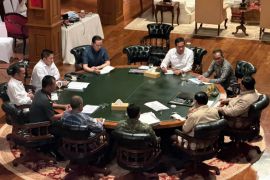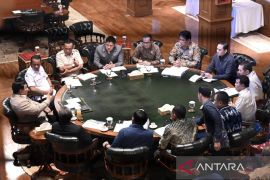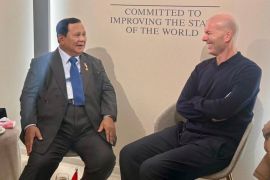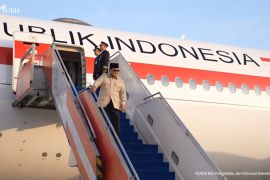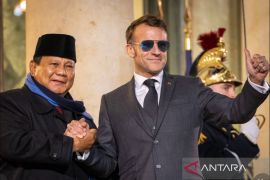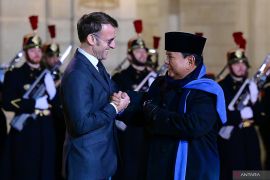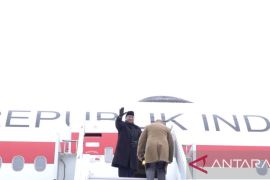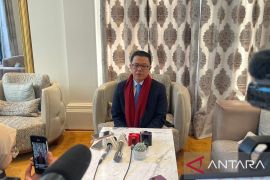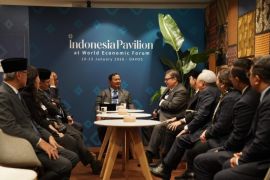"Hello, media in Indonesia. You all belong to the people. Do not broadcast lies. Our people are demanding a regime change, justice, prosperity, and peace. Our people do not want to be cheated anymore," Prabowo Subianto stated.Bogor, W Java (ANTARA) - A day before the convening of the fourth round of the presidential debate on Saturday, Indonesian Presidential candidate number 02 Prabowo Subianto surprised journalists covering his campaign event in Karawang District, West Java Province.
Subianto acknowledged the presence of media workers at his campaign event on Friday but, at the same time, he urged them to keep in mind that they "belong" to the people, including those currently seeking a change in regime.
"All brothers and sisters are there, and among you, our media. Hello, media!" he shouted from the stage to the working journalists before concluding his speech at the campaign event attended by several thousand people.
Appearing at ease, Subianto, who will go head-to-head with incumbent President Joko Widodo in the upcoming parliamentary and presidential elections, scheduled simultaneously on April 17, sent a message that his supporter has consistently made demands from media workers.
"Hello, media in Indonesia. You all belong to the people. Do not broadcast lies. Our people are demanding a regime change, justice, prosperity, and peace. Our people do not want to be cheated anymore," he stated.
After greeting media workers from the stage, Subianto then broke into a dance move. Several thousand supporters welcomed Subianto at this campaign event by singing "Tala‘ al-Badru ‘Alayna".
Tracing back the history of Islam, Medina or Ansar residents sang this nasheed to welcome the arrival of Prophet Muhammad (peace be upon him) in the city after undertaking an arduous journey migrating from Mecca to Medina in 622.
Prabowo Subianto's message to the media workers covering his campaign event in Karawang District on Friday has again underlined the importance of mainstream media outlets in the country to uphold the principle of impartiality while reporting the news.
However, in terms of the quantity of news reports published by the country's credible print media or broadcast by its national news channels in their news bulletins, the Prabowo Subianto-Sandiaga Uno pair is left far behind by their contender.
Instead, it is obvious that the incumbent president, Joko Widodo (Jokowi), and his running mate, Ma'ruf Amin, dominate the news coverage of the country's mainstream media compared to that of the Prabowo-Sandi pair.
From the beginning, the credibility of Indonesia's media outlets in their news coverage on politically-related events has been tested ahead of this year's presidential elections.
Whether the media outlets are able to remain impartial and meet the people's right to know and to consume credible news is not always clear due to the media conglomeration in the country.
Instead of being impartial in their news reporting and presentation, certain media tend to provide the public with biased content, which tends to be more favourable to the interests of a certain pair of presidential and vice presidential candidates.
Actually, the issues of partiality and impartiality in the journalistic works of print, electronic, and online media in the country have repeatedly been raised by various groups and individuals, particularly ahead of the upcoming presidential race.
Therefore, it is understandable that former president Susilo Bambang Yudhoyono, who is currently general chairman of the Democrat Party, raised this issue while speaking at a commemorative event of his party's 17th anniversary.
In his speech that he delivered on the occasion, broadcast live nationwide by TV One last year, Yudhoyono urged all media workers and organizations in the country to maintain impartiality in their news coverage and presentation.
The impartiality, he said, was significant for providing readers and the audience with credible news because the media actually belongs to the public.
Yudhoyono's concerns over the media's partiality may represent public interests by considering the immense impact of news content on building public opinion that may potentially affect the people's political preferences in the ballot booths.
Besides the issues of partiality and media framing, which, sometimes, make those contesting in the elections uneasy over the news content, the spread of fake news and hate speeches are also other serious challenge for the mainstream media.
By maintaining their professionalism and the journalistic code of ethics, the media workers will work professionally because they are aware of what Prabowo Subianto has warned them about—that they actually belong to the people who seek the truth.
EDITED BY INE
Editor: Fardah Assegaf
Copyright © ANTARA 2019
